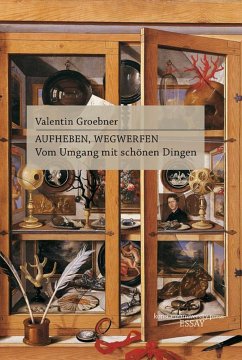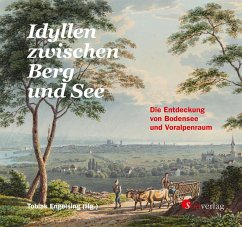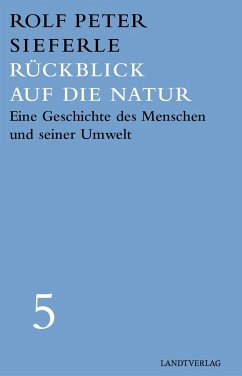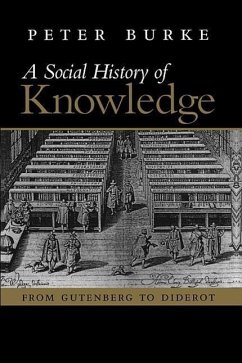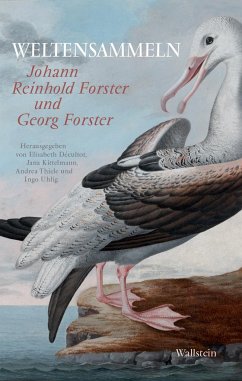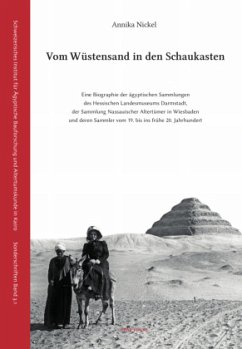
Collectors' Knowledge: What Is Kept, What Is Discarded / Aufbewahren Oder Wegwerfen: Wie Sammler Entscheiden
Versandkostenfrei!
Nicht lieferbar
Drawing on case studies from the thirteenth to the twentieth centuries, covering Europe and beyond, Collectors' Knowledge: What is Kept, What is Discarded investigates how knowledge was acquired, organized and sometimes lost. It examines collections of texts and objects-libraries, textbooks, miscellanies, commonplace books, data collections pertaining to historical events, encyclopedias, royal and ducal treasures, curiosity cabinets, galleries and museums-to uncover the processes of accumulation, organization, selection and rejection that have shaped learning. The essays emphasize the complex ...
Drawing on case studies from the thirteenth to the twentieth centuries, covering Europe and beyond, Collectors' Knowledge: What is Kept, What is Discarded investigates how knowledge was acquired, organized and sometimes lost. It examines collections of texts and objects-libraries, textbooks, miscellanies, commonplace books, data collections pertaining to historical events, encyclopedias, royal and ducal treasures, curiosity cabinets, galleries and museums-to uncover the processes of accumulation, organization, selection and rejection that have shaped learning. The essays emphasize the complex relationship between the intentions of collectors and the limitations they encountered-issues of format, presentation, display and storage-as well as outside forces that disrupted their aims, including pillage and natural disasters.
Contributors include: Stephen Bann, Laurence Brockliss, François de Capitani, Livia Cárdenas, Steven Conn, Anja-Silvia Goeing, Anthony T. Grafton, Janet Grau, Jürgen Leonhardt, Ulrich Marzolph, Paul Michel, Jürgen Oelkers, Wilhelm Schmidt-Biggemann, Nicola Schneider, Gerald Schwedler, Iolanda Ventura, Monika Wicki, and Marc Winter.
Achtzehn europäische und aussereuropäische Fallstudien vom dreizehnten bis zwanzigsten Jahrhundert fragen in "Collectors' Knowledge: What Is Kept, What Is Discarded - Aufbewahren oder wegwerfen - wie Sammler entscheiden", wie Wissen erworben und organisiert wurde und weshalb es verloren ging. Die Autoren untersuchen Sammlungen von Texten und Objekten - Bibliotheken, Lehrbücher, Sammelbände, Datensammlungen im Zusammenhang mit historischen Ereignissen, Enzyklopädien, herrschaftliche Schätze, Wunderkammern und Museen. Ihr Ziel ist es, Prozesse der Akkumulation, Organisation, Auswahl und Ablehnung aufzudecken, die unser Wissen über die Epochen geprägt haben. Die Aufsätze unterstreichen die komplexen Beziehungen zwischen den Absichten der Sammler und den Zwängen, mit denen sie konfrontiert waren - in Fragen des Formates, der Präsentation oder Speicherung -, sowie den Kräften, die Verluste bewirkten, beispielsweise Plünderung oder ideengeschichtliche Umwälzungen.
Contributors include: Stephen Bann, Laurence Brockliss, François de Capitani, Livia Cárdenas, Steven Conn, Anja-Silvia Goeing, Anthony T. Grafton, Janet Grau, Jürgen Leonhardt, Ulrich Marzolph, Paul Michel, Jürgen Oelkers, Wilhelm Schmidt-Biggemann, Nicola Schneider, Gerald Schwedler, Iolanda Ventura, Monika Wicki, and Marc Winter.
Achtzehn europäische und aussereuropäische Fallstudien vom dreizehnten bis zwanzigsten Jahrhundert fragen in "Collectors' Knowledge: What Is Kept, What Is Discarded - Aufbewahren oder wegwerfen - wie Sammler entscheiden", wie Wissen erworben und organisiert wurde und weshalb es verloren ging. Die Autoren untersuchen Sammlungen von Texten und Objekten - Bibliotheken, Lehrbücher, Sammelbände, Datensammlungen im Zusammenhang mit historischen Ereignissen, Enzyklopädien, herrschaftliche Schätze, Wunderkammern und Museen. Ihr Ziel ist es, Prozesse der Akkumulation, Organisation, Auswahl und Ablehnung aufzudecken, die unser Wissen über die Epochen geprägt haben. Die Aufsätze unterstreichen die komplexen Beziehungen zwischen den Absichten der Sammler und den Zwängen, mit denen sie konfrontiert waren - in Fragen des Formates, der Präsentation oder Speicherung -, sowie den Kräften, die Verluste bewirkten, beispielsweise Plünderung oder ideengeschichtliche Umwälzungen.




